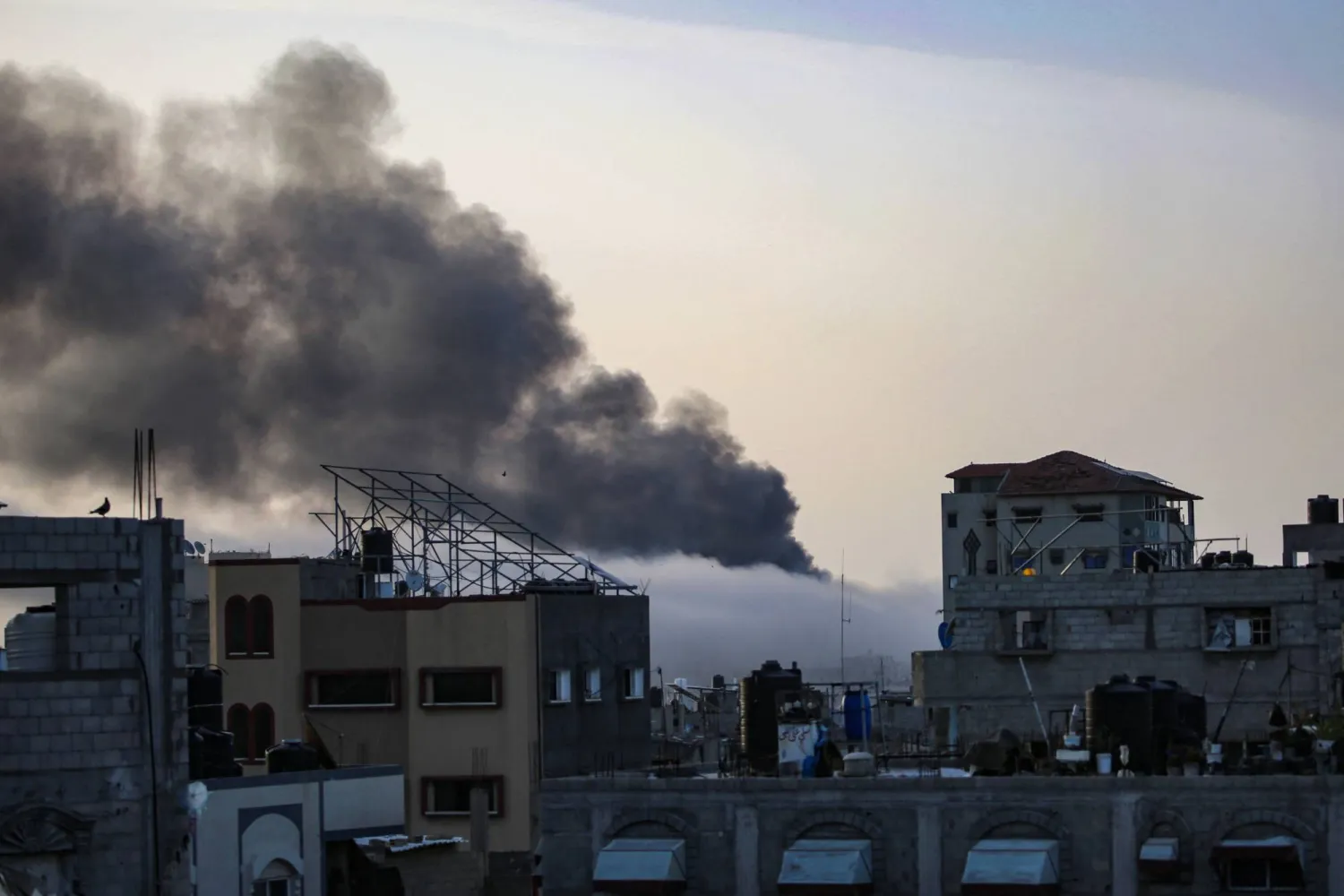The Palestinian group Hamas said on Friday efforts to agree to a ceasefire for the Gaza Strip were back at square one after Israel effectively rejected a proposal by international mediators.
Hamas said in a statement it would hold consultations with Palestinian factions to review its strategy for negotiations on halting seven months of war, triggered by its deadly attack on Israel on Oct. 7.
The United Nations warned hours earlier that aid for Gaza could grind to a halt in days after Israel seized control this week of the Rafah crossing between Gaza and Egypt, a vital route for supplies to the devastated Palestinian enclave.
Despite fierce US pressure, Israel has said it will go ahead with an assault on the southern Gaza city of Rafah, where more than 1 million displaced people have sought refuge and Israeli forces say Hamas fighters are hiding.
Israeli tanks captured the main road dividing the eastern and western sections of Rafah on Friday, effectively encircling the eastern part of the city in an assault that has caused Washington to block some military aid to its ally.
Indirect diplomacy has failed to end a war that health authorities in Hamas-run Gaza say has killed almost 35,000 people since the Oct. 7 attack. Some 1,200 people were killed in Israel and 253 taken hostage on Oct. 7, according to Israeli tallies.
Ceasefire talks in Cairo broke up on Thursday with no agreement to halt the fighting and release hostages.
Hamas had said it agreed at the start of the week to a proposal submitted by Qatari and Egyptian mediators that had previously been accepted by Israel. Israel said the Hamas proposal contained elements it cannot accept.
"Israel’s rejection of the mediators’ proposal through the amendments it made returned things to the first square," Hamas said in Friday's statement.
"In the light of Netanyahu’s behavior and rejection of the mediators’ document and the attack on Rafah and the occupation of the crossing, the leadership of the movement will hold consultations with the brotherly leaders of the Palestinian factions to review our negotiation strategy."
EXPLOSIONS AND GUNFIRE
Residents described almost constant explosions and gunfire east and northeast of Rafah on Friday, with intense fighting between Israeli forces and fighters from Hamas and Islamic Jihad.
Hamas said it ambushed Israeli tanks near a mosque in the east of the city, a sign the Israelis had penetrated several kilometers from the east to the outskirts of the built-up area.
Israel has ordered civilians out of the eastern part of Rafah, forcing tens of thousands of people to seek shelter outside the city, previously the last refuge of more than a million who fled other parts of the enclave during the war.
Israel says it cannot win the war without assaulting Rafah to root out thousands of Hamas fighters it believes are sheltering there. Hamas says it will fight to defend it.
Supplies were already running short and aid operations could halt within days as fuel and food stocks get used up, United Nations aid agencies said.
"For five days, no fuel and virtually no humanitarian aid entered the Gaza Strip, and we are scraping the bottom of the barrel," said the UNICEF Senior Emergency Coordinator in the Gaza Strip, Hamish Young.
Aid agencies say the battle has put hundreds of thousands of already displaced civilians in harm's way.
"It is not safe, all of Rafah isn't safe, as tank shells landed everywhere since yesterday," Abu Hassan, 50, a resident of Tel al-Sultan west of Rafah told Reuters via a chat app.
"I am trying to leave but I can't afford 2,000 shekels ($540) to buy a tent for my family," he said. "There is an increased movement of people out of Rafah even from the western areas, though they were not designated as red zones by the occupation."
Israeli tanks have already sealed off eastern Rafah from the south, capturing and shutting the only crossing between the enclave and Egypt. An advance on Friday to the Salahuddin road that bisects the Gaza Strip completed the encirclement of the "red zone" where they have ordered residents out.
The Israeli military said its forces in eastern Rafah had located several tunnel shafts, and troops backed by an air strike fought at close quarters with groups of Hamas fighters, killing several. It said Israeli jets had hit several sites from which rockets and mortar bombs had been fired towards Israel in recent days.
The prospect of a full assault on Rafah has opened up one of the biggest rifts for generations between Israel and its closest ally the United States, which has blocked shipments of weapons to Israel for the first time since the war began.
Netanyahu said on Thursday Israel would "fight with our fingernails" if it must, and he hoped disagreements with President Joe Biden would be resolved.









